We recognise the value of having the appropriate tools to boost production and efficiency in the agricultural sector as a provider of farm equipment. Our cutting-edge equipment is made with an emphasis on accuracy, toughness, and usability to satisfy the changing needs of farmers.
We shall delve into our product line and highlight the salient characteristics and advantages of our machinery in this blog. Here you will find Reliable farm equipment supplier and our goods are made to assist farmers in overcoming the most difficult difficulties in the field.
Additionally, we’ll talk about the most recent developments in farming, including precision farming and autonomous machinery. To assist farmers keep on top of the latest developments, our team of professionals is always researching and creating new technology.
Introduction of Farm Equipment Supplier
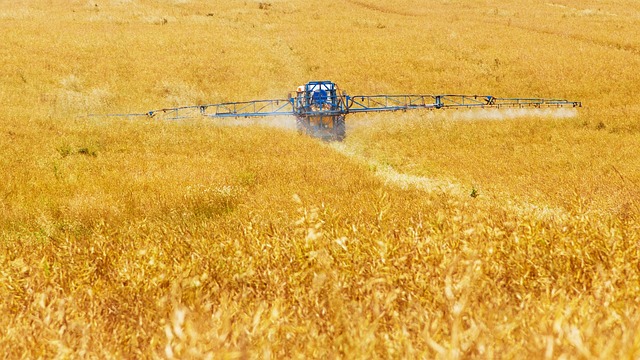
Welcome to our blog, where we discuss our love of modern farm machinery and the agricultural sector. We have long given farmers the resources they require to flourish as a top supplier of farm equipment. With our cutting-edge equipment, we want to assist farmers in boosting output, cutting expenses, and enhancing sustainability.
At our heart, we think that farming is a way of life rather than just a profession. We are committed to helping farmers at every stage since we are aware of the effort and labour that go into every crop and every harvest. Our team of specialists has a thorough awareness of the difficulties that the agricultural sector faces, and we are continually looking for and creating innovative solutions to assist farmers in overcoming these difficulties.
We offer a broad range of machinery in our product line, from tractors and combines to planters and sprayers. To provide our customers the most recent advancements in farming equipment, we collaborate with the leading manufacturers in the sector. Our products are made to be precise, dependable, and simple to use so that farmers may do tasks quickly and effectively.
We also think that technology has the potential to revolutionise the agricultural sector. Because of this, we are continuously looking for innovative methods to include autonomous equipment and precision agriculture in our product line. By lowering waste, raising yields, and enhancing sustainability, these technologies have the potential to revolutionise agriculture.Through this blog, we are thrilled to impart our wisdom and experience to you. Join us on this adventure as we investigate the world of agricultural machinery and assist farmers in making progress in their fields.
Importance of Advanced Farm Equipment in the Agriculture Industry
Advanced farm equipment is essential to the success of the agriculture industry. With the global population expected to reach 9.7 billion by 2050, farmers are under increasing pressure to produce more food with less resources. Advanced equipment helps farmers increase productivity, reduce costs, and improve sustainability, making it a critical component of modern agriculture.
One of the key benefits of advanced farm equipment is precision. Precision agriculture involves using technology to optimize crop yields while minimizing waste. Advanced equipment such as GPS-guided tractors and drones can help farmers analyze soil conditions, monitor crop growth, and apply fertilizers and pesticides with pinpoint accuracy. This leads to increased yields, reduced costs, and improved environmental sustainability.
Another benefit of advanced farm equipment is durability. Farming is a tough job, and equipment needs to be able to withstand harsh conditions and heavy use. Advanced equipment is designed with durability in mind, using high-quality materials and advanced engineering techniques to ensure that it can withstand the rigors of the field.
Ease of use is another important factor in advanced farm equipment. Farmers need equipment that is easy to operate and maintain, without sacrificing performance or precision. Advanced equipment is designed with user-friendly interfaces and intuitive controls, making it easy for farmers to get the job done quickly and efficiently.
Finally, advanced farm equipment is essential for meeting the growing demand for sustainable agriculture. Sustainable agriculture involves using farming practices that protect the environment, conserve natural resources, and support local communities. Advanced equipment can help farmers achieve these goals by reducing waste, minimizing environmental impact, and improving efficiency.
In conclusion, advanced farm equipment is critical to the success of the agriculture industry. Precision, durability, ease of use, and sustainability are all key benefits of advanced equipment, helping farmers increase productivity, reduce costs, and improve environmental sustainability. As the demand for food continues to rise, it is essential that farmers have access to the latest technologies and innovations in farming equipment in order to meet this challenge.
Overview of the 10 different types of equipment offered
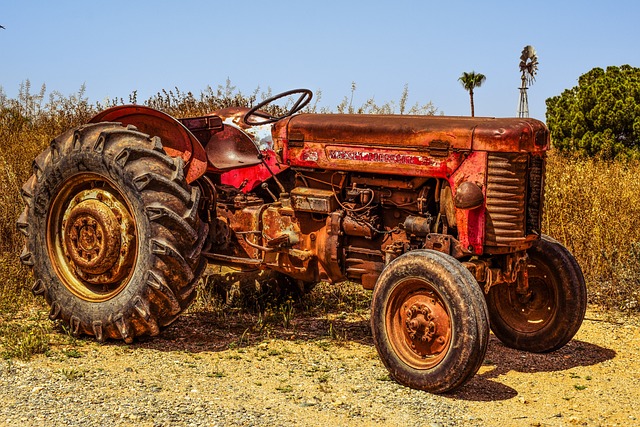
- Tractors:
Tractors are a staple in the agriculture industry, used for a wide range of tasks such as plowing, planting, and harvesting. Advanced tractors are designed with features such as GPS guidance, variable rate technology, and automated steering systems to improve precision and efficiency.
- Combines:
Combines are used for harvesting crops such as wheat, corn, and soybeans. Advanced combines use sensors and software to optimize harvesting efficiency, reduce grain loss, and improve crop quality.
- Planters:
Planters are used for planting crops such as corn, soybeans, and cotton. Advanced planters use precision technology to ensure that seeds are planted at the correct depth and spacing, leading to more consistent yields.
- Sprayers:
Sprayers are used for applying fertilizers and pesticides to crops. Advanced sprayers use GPS technology and variable rate application systems to apply chemicals with precision, reducing waste and minimizing environmental impact.
- Tillage Equipment:
Tillage equipment is used for preparing soil for planting. Advanced tillage equipment uses precision technology to optimize soil conditions, reducing soil compaction and improving crop yields.
- Hay Equipment:
Hay equipment is used for harvesting and baling hay. Advanced hay equipment uses features such as automated baling systems and moisture sensors to improve efficiency and reduce waste.
- Grain Carts:
Grain carts are used for transporting harvested grain from the field to storage bins or trucks. Advanced grain carts use features such as hydraulic augers and scales to improve efficiency and accuracy.
- Seed Tenders:
Seed tenders are used for transporting and dispensing seed during planting. Advanced seed tenders use features such as automated filling systems and scales to improve accuracy and reduce waste.
- Grain Dryers:
Grain dryers are used for drying harvested grain before storage. Advanced grain dryers use features such as automated controls and moisture sensors to improve efficiency and reduce energy use.
- Livestock Equipment:
Livestock equipment is used for managing and caring for livestock such as cattle, pigs, and poultry. Advanced livestock equipment uses features such as automated feeding systems and climate control to improve animal health and productivity.
In conclusion, the agriculture industry relies on a wide range of advanced equipment to meet the growing demand for food while minimizing environmental impact. From tractors and combines to livestock equipment and grain dryers, advanced equipment is essential for improving efficiency, reducing waste, and improving sustainability in modern agriculture.
10 Key Features And Benefits Of Each Product
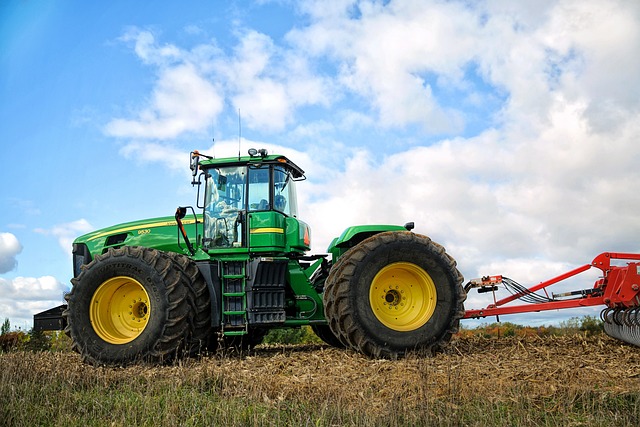
1. Tractors
Key Features:
– GPS guidance for precise operation
– Variable rate technology for efficient use of inputs
– Automated steering systems for improved accuracy
Benefits:
– Improved efficiency and productivity
– Reduced environmental impact through precise application of inputs
– Reduced operator fatigue through automated features
2. Combines
Key Features:
– Sensors and software for optimized harvesting efficiency
– Reduced grain loss through advanced cleaning systems
– Improved crop quality through precision harvesting
Benefits:
– Increased yield and profitability
– Reduced waste and environmental impact
– Improved crop quality and consistency
3. Planters
Key Features:
– Precision technology for accurate seed placement
– Variable rate application systems for efficient use of inputs
– Automated features for improved efficiency
Benefits:
– More consistent yields and improved crop quality
– Reduced input costs and environmental impact
– Improved efficiency and productivity
4. Sprayers
Key Features:
– GPS technology for precise application of chemicals
– Variable rate application systems for efficient use of inputs
– Automated features for improved accuracy and efficiency
Benefits:
– Reduced waste and environmental impact
– Improved crop yields and quality
– More efficient use of inputs and reduced costs
5. Tillage Equipment
Key Features:
– Precision technology for optimal soil conditions
– Reduced soil compaction through advanced features
– Improved efficiency and productivity
Benefits:
– Improved crop yields through optimal soil conditions
– Reduced environmental impact through reduced soil compaction
– Improved efficiency and reduced labor costs
6. Hay Equipment
Key Features:
– Automated baling systems for improved efficiency
– Moisture sensors for improved quality control
– Reduced waste through more efficient harvesting
Benefits:
– Increased productivity and efficiency
– Improved crop quality and consistency
– Reduced waste and environmental impact
7. Grain Carts
Key Features:
– Hydraulic augers for efficient grain transfer
– Scales for accurate measurement of grain weight
– Automated features for improved efficiency
Benefits:
– Improved accuracy and efficiency in grain transport
– Reduced labor costs and operator fatigue
– More efficient use of time and resources
8. Seed Tenders
Key Features:
– Automated filling systems for improved efficiency
– Scales for accurate measurement of seed weight
– Reduced waste through precise dispensing of seed
Benefits:
– Improved accuracy and efficiency in seed transport and dispensing
– Reduced waste and environmental impact
– More efficient use of inputs and reduced costs
9. Grain Dryers
Key Features:
– Automated controls for improved efficiency and safety
– Moisture sensors for precise drying of grain
– Reduced energy use through advanced features
Benefits:
– Improved efficiency and reduced drying time
– More consistent grain quality and reduced spoilage
– Reduced energy use and environmental impact
10. Livestock Equipment
Key Features:
– Automated feeding systems for improved efficiency and accuracy
– Climate control systems for improved animal health and productivity
– Advanced monitoring systems for improved herd management
Benefits:
– Improved animal health and productivity
– Reduced labor costs and operator fatigue
– More efficient use of time and resources
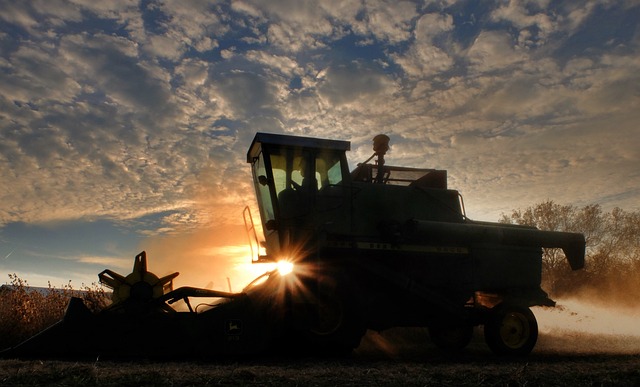
Latest Trends and Innovations in farm equipment supplier
- Precision Agriculture;
Precision agriculture involves the use of advanced technology such as GPS and GIS to optimize crop yields and reduce waste. This technology is becoming increasingly popular among farmers as it allows them to monitor and manage their crops more efficiently.
- Autonomous Tractors;
Autonomous tractors are a recent innovation in farm equipment that allows farmers to automate routine tasks such as tilling, planting, and harvesting. These tractors use advanced sensors and algorithms to navigate the field and operate with minimal human intervention.
- Drones;
Drones are increasingly being used in agriculture to monitor crops and gather data on soil conditions, water usage, and pest infestations. These devices allow farmers to quickly and accurately assess their fields and make informed decisions about crop management.
- Variable Rate Technology ;
Variable rate technology allows farmers to apply fertilizers, pesticides, and other inputs to their crops at variable rates based on specific field conditions. This technology can help farmers optimize their yields and reduce waste.
- Vertical Farming;
Vertical farming involves growing crops in vertically stacked layers using artificial lighting and controlled environments. This technology can be used to grow crops in urban areas where space is limited, and allows farmers to optimize growing conditions and yields.
- Advanced Sensors;
Advanced sensors are increasingly being used in agriculture to monitor soil moisture, temperature, and nutrient levels. These sensors allow farmers to make informed decisions about crop management and optimize their yields.
- Data Analytics;
Data analytics is becoming increasingly important in agriculture as farmers seek to optimize their operations and reduce waste. By analyzing data on soil conditions, weather patterns, and crop yields, farmers can make informed decisions about planting and harvesting.
- Automated Harvesting;
Automated harvesting involves the use of robots and other automated equipment to harvest crops. This technology can help farmers reduce labor costs and increase efficiency.
- Livestock Monitoring;
Livestock monitoring technology allows farmers to monitor the health and well-being of their animals in real-time. This technology can help farmers identify potential health issues early and take corrective action before they become more serious.
- Irrigation Technology;
Advanced irrigation technology allows farmers to optimize water usage and reduce waste. This technology includes drip irrigation, smart sprinkler systems, and other systems that allow farmers to precisely control water usage.
- Farm Management Software;
Farm management software allows farmers to manage their operations more efficiently by providing tools for inventory management, crop planning, and financial management. This software can help farmers optimize their operations and reduce waste.
- Soil Mapping;
Soil mapping technology allows farmers to create detailed maps of their fields that show soil type, nutrient levels, and other important information. This information can help farmers optimize their fertilizer usage and increase yields.
- Climate Control ;
Climate control technology allows farmers to optimize growing conditions in greenhouses and other controlled environments. This technology includes heating and cooling systems, humidity control, and other features that allow farmers to create optimal growing conditions for their crops.
- Livestock Genetics;
Livestock genetics technology allows farmers to selectively breed animals with desirable traits such as disease resistance, growth rate, and meat quality. This technology can help farmers optimize their herds and increase profitability.
- Advanced Harvesting Equipment ;
Advanced harvesting equipment such as combine harvesters and balers are becoming increasingly sophisticated, with features such as GPS guidance, automated controls, and advanced sensors. These features can help farmers increase efficiency and reduce waste during the harvesting process.
Customer Service and Support in farm equipment supplier
Customer service and support are critical components of any farm equipment supplier’s business. As farming becomes more technology-driven, equipment suppliers must provide excellent customer service to help their customers manage and maintain their equipment properly. Here are some of the key aspects of customer service and support in the farm equipment industry:
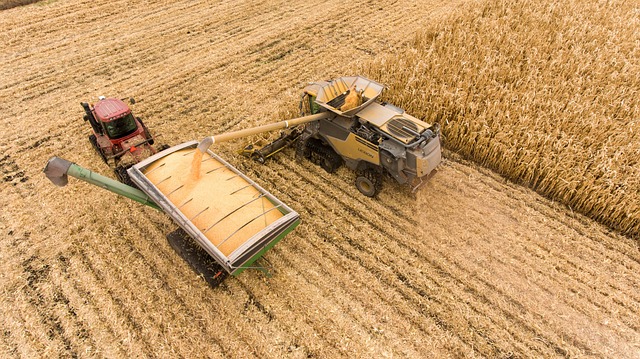
- Technical Support ;
Farm equipment suppliers must have knowledgeable and responsive technical support teams to assist farmers with any issues they may encounter with their equipment. This includes providing troubleshooting assistance, technical advice, and repair services.
- Parts and Service Availability;
Farm equipment suppliers must have a robust supply chain to ensure that they can provide their customers with the parts and services they need in a timely manner. This requires a well-coordinated logistics network and strong relationships with parts manufacturers and service providers.
- Warranty and Maintenance Programs;
Farm equipment suppliers must offer comprehensive warranty and maintenance programs to help their customers keep their equipment running smoothly. These programs should cover routine maintenance, repairs, and replacement parts to minimize downtime and maximize productivity.
- Training and Education;
Farm equipment suppliers must provide training and education to their customers to help them properly operate and maintain their equipment. This includes providing manuals, instructional videos, and hands-on training sessions.
- Online Support and Resources;
Farm equipment suppliers must have a robust online presence to provide their customers with access to technical support, parts and service information, and other resources. This includes offering online chat support, video tutorials, and online forums where customers can connect with each other and share information.
- Mobile Support ;
Farm equipment suppliers must have mobile support options to enable their customers to access technical support and other resources on their mobile devices. This includes mobile apps, responsive websites, and other mobile-friendly resources.
- Customer Feedback and Support Improvement;
Farm equipment suppliers must be receptive to customer feedback and continuously improve their customer support processes. This includes regularly surveying customers to identify areas for improvement and implementing new processes and tools to enhance the customer experience.
- 24/7 Support ;
Farm equipment suppliers must have a 24/7 support system to ensure that their customers can get the help they need at any time of day. This requires a robust support team and a well-designed support system that can handle high volumes of customer inquiries.
- Communication Farm equipment;
suppliers must have clear and timely communication with their customers to keep them informed about equipment updates, maintenance schedules, and other important information. This includes sending out regular newsletters, email updates, and other forms of communication to keep customers informed and engaged.
- Customer Service Representatives ;
Farm equipment suppliers must have friendly and knowledgeable customer service representatives to assist customers with any questions or concerns they may have. These representatives should be trained to provide excellent customer service and have access to the technical resources they need to assist customers effectively.
Conclusion
In conclusion, the farm equipment industry is constantly evolving, with new trends and innovations emerging all the time. From autonomous tractors to precision farming technologies, there are many exciting developments that are helping farmers to improve efficiency, productivity, and sustainability.
However, as the industry evolves, so too do the challenges that farmers and equipment suppliers face. These challenges include concerns around safety, security, and data privacy, as well as the need for robust customer service and support.
To address these challenges, farmers and equipment suppliers must work together to ensure that they are taking the necessary steps to protect themselves and their customers. This includes implementing strong security and data privacy measures, providing excellent customer service and support, and staying up-to-date with the latest industry trends and innovations.
As the farm equipment industry continues to evolve, it is essential that farmers and equipment suppliers stay ahead of the curve. This means investing in new technologies, developing strong partnerships, and collaborating to overcome the challenges of an ever-changing industry.
Ultimately, by embracing new trends and innovations, prioritizing customer service and support, and working together to address common challenges, the farm equipment industry can continue to grow and thrive in the years ahead.

